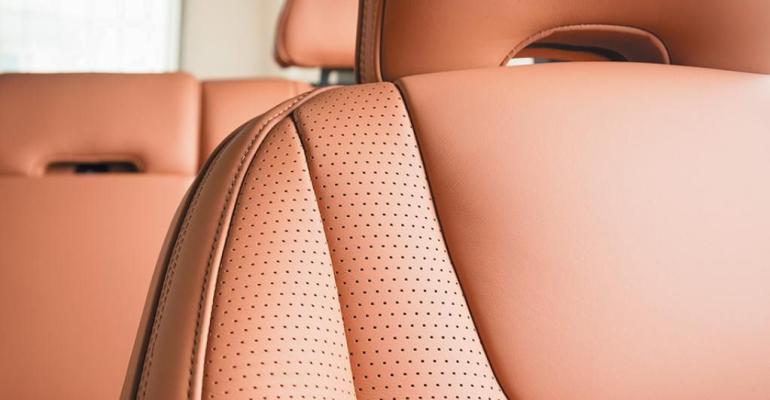After a year of AI education in the automotive industry, 2024 is set to bring a major shift as automotive interior manufacturers now gear up to fully embrace Industry 4.0 technologies.
Last year, manufacturers took the time to understand how these advancements could improve efficiency. This year, manufacturers will build on the success stories of early adopters and deepen their understanding of the various benefits that Industry 4.0 solutions offer. They want to seamlessly integrate these solutions into their processes, aiming to optimize materials, manage waste and enhance overall product quality.
Manufacturers already have started implementing these solutions in a number of ways: additive manufacturing (also known as 3D printing); the Internet of Things (IoT); big data or smart machines. These innovative solutions will push automotive manufacturing into an era of unprecedented efficiency and competitiveness.
Navigating the Complexity of Modern Vehicles
As vehicles become more complex, automotive interior manufacturers feel the pressure to adopt cutting-edge technologies so as to not be left behind. This year is expected to witness the release of numerous updated vehicle models, prompting manufacturers to invest in new technology to keep up with the evolving landscape.
The designs of upcoming vehicles require updated technology capable of integrating high-end materials, including alternatives such as leather substitutes for interiors. Staying ahead in this dynamic market demands strategic investments in equipment to stay abreast of ever-evolving automotive trends.
Although 4.0 technology offers exciting opportunities, it’s important to keep in mind that this is still a transformational period that comes with a learning curve for employees who now need a particular skill set. Additionally, making the most of these innovations requires significant investments, demanding the right blend of expertise and strategic planning. It’s not just about embracing the future; it’s about doing so wisely and with a keen understanding of the road ahead.
Driving Toward Zero Waste
Sustainability also takes a central role in shaping the future of automotive interior manufacturing. While 2023 saw the launch and adoption of Industry 4.0 automotive cutting room technology, 2024 is expected to witness an expansion of manufacturers’ sustainability initiatives. Precision cutters, a crucial component of this technology, are set to guide manufacturers toward achieving a production cycle with zero waste. This aligns with the growing sustainability preferences of consumers and proves to be a strategically sound and cost-effective approach for manufacturers.
The journey toward zero waste is positioning automotive manufacturers as pioneers in sustainability. To keep up with recent progress, manufacturers are more willing to take on the fundamental values of sustainable development enabling more environmental, social and economic efficiencies. The integration of Industry 4.0 solutions, combined with a commitment to sustainability, underscores the industry's dedication to staying at the forefront of technological advancements while meeting the demands of environmentally conscious consumers.
Revolutionizing the Automotive Landscape
The adoption of innovative solutions is poised to make 2024 a landmark year. With an enhanced understanding of the benefits of Industry 4.0, manufacturers are expected to make strides in material optimization, waste reduction and overall production efficiency. The success stories from those who embraced these solutions in 2023 have paved the way for broader acceptance within the industry, setting the stage for a collective push toward a more streamlined and technologically advanced future.
As the automotive industry navigates the challenges and opportunities of 2024, it’s evident that this year marks a significant inflection point. The convergence of technological advancements, model updates and sustainability initiatives propel the industry into a future where efficiency, innovation and environmental responsibility go hand in hand.
 Automotive interior manufacturers, in particular, are at the forefront of this transformation, embracing Industry 4.0 and sustainable practices to not only meet market demands but also shape the future of automotive manufacturing itself.
Automotive interior manufacturers, in particular, are at the forefront of this transformation, embracing Industry 4.0 and sustainable practices to not only meet market demands but also shape the future of automotive manufacturing itself.
Leonard Marano (pictured, left) is president of the Americas at Lectra, which specializes in CAD software and CAM cutting-room systems for industries using soft material such as leather and textiles.





